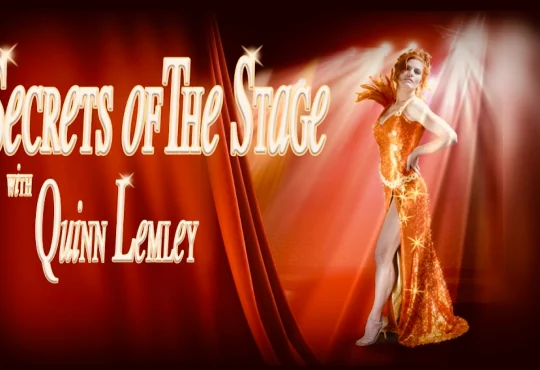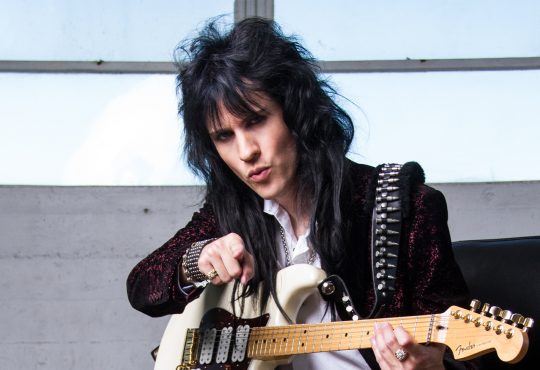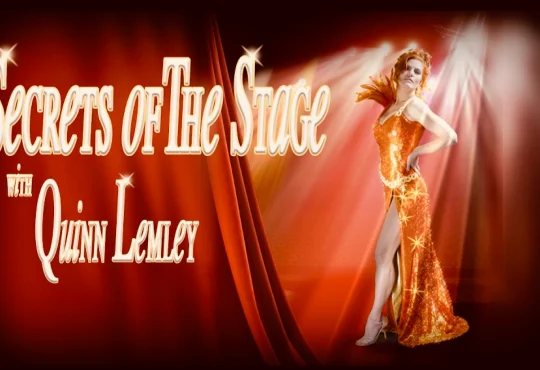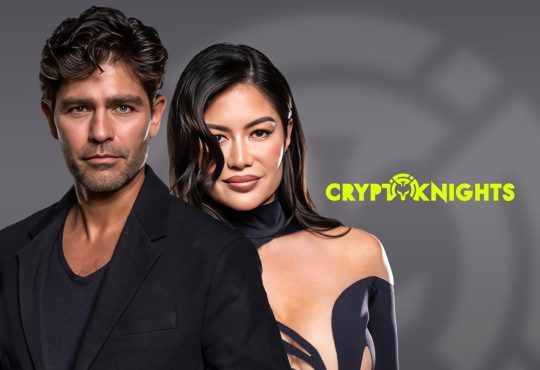‘Wandavision’ Series Finale Recap: The Lyin’, the Witch and the Wardroid
A review of the WandaVision finale coming up just as soon as I say that debriefs are for the weak…
Yesterday, I wrote an essay praising WandaVision for leaning into its existence as a television show, rather than a Marvel Cinematic Universe film drawn out to fill up nine episodes. With an episode aptly titled “The Series Finale,” WandaVision concludes very much in MCU territory, a bit for good and more for ill.
It’s not just that we’ve long since left the sitcom conceit behind(*), but that the bulk of the extra-long finale was devoted to action spectacle, with Wanda battling Agatha Harkness, the fantasy Vision trying to hold off his ghostly doppelganger, and Tyler Hayward and his SWORD team breaching the Hex in an attempt to clean up their mess.
(*) Imagine, though, an attempt to go full Fleabag with this conclusion, especially with Wanda waving goodbye to her disappearing family before walking into the distance. Buckets, we might have been crying. Buckets.
In addition to his facility with sitcom mimicry, Matt Shakman also happens to be a very good action director, who was behind the camera for one of the best Game of Thrones set pieces ever, when the Lannister army fought against both the Dothraki and a dragon. Like the Russo brothers, he keeps the geography clean, making it fairly easy to follow where each character is and what they’re doing. And even on a much smaller scale than that Thrones battle or, say, the Avengers fighting one another in a German airport, this was an impressive-looking blend of actors emoting and their CGI avatars soaring through the air.
But with a few exceptions — mostly the four Avengers films, plus the first Ant-Man — the final fight scene is almost never what you walk out of an MCU film thinking about. And that’s unfortunately the case here. “The Series Finale” is … fine? It looks good, and it has some nice emotional moments. But where so much of the series leading to this point felt like a passion project for all involved, too much of the conclusion felt obligatory, as if the mandate was to return to formula and ensure that Wanda and Monica Rambeau are ready for their upcoming appearances in, respectively, the next Doctor Strange and Captain Marvel movies.
Stream WandaVision on Disney+ here
It was satisfying that both our heroes won using brain rather than brawn. Good Vision traps Evil Vision in a philosophical logic loop, then uses his magic fingers(*) to unlock all of his body’s old memories, sending the ghostly, now potentially good again, Vision flying away until he’s next needed in an MCU project. And Wanda proves a quick study by using Agatha’s speech about runes to turn the walls of the Hex itself into a way to steal Agatha’s powers and transform her full-time into Agnes the nosy neighbor.
(*) Wanda later describes the Vision she created as “the piece of the Mind Stone that lives in me,” and in hindsight it makes some vague amount of sense that he would thus be able to un-brainwash Norm and other people he encountered along the way.
But the emotional end of things — the part that made WandaVision feel special — mostly felt lacking. There’s a terrific moment midway through where Agatha frees the minds of Wanda’s many victims, who are then allowed to talk about the trauma she has put each of them through. “Mrs. Hart,” whose real name is Sharon Davis, actually begs Wanda to kill her rather than force her to go on as a sitcom character with no will of her own. (It feels like one last commentary on the monotony of so many classic sitcoms, as it’s not hard to imagine a “realistic” version of Gilligan from Gilligan’s Island might similarly want to kill himself if he could look at his life from outside the confining narrative of the show.) It’s a dark, honest sequence, and one that seems to be leading to a deeper comment about how people who are victims of trauma can sometimes inflict trauma on others, the abused becoming the abusers, etc. But then the finale flinches, and in their farewell scene, Monica admits that she would have done the same for her mother if she had Wanda’s powers, and implies that the people of Westview should feel grateful to Wanda for sacrificing Vision and the twins for them.
It’s a remarkably clumsy attempt to handwave away the intense emotional torture Wanda put her “co-stars” through. Superhero stories have to do this kind of thing all the time, particularly with characters who keep crossing the good/evil divide like Wanda — remember, she started out as sidekick to a genocidal robot who wound up destroying most of her home country, and still got to join the Avengers after. But in a show that has made grief and healing into its primary, very explicit subject, that beat rings incredibly false.
For that matter, the show stumbles in depicting parts of Wanda’s sacrifice. She is in the middle of tearing down the Hex when she realizes that Vision, Tommy, and Billy will disappear in the process. She’s not prepared for that, not even after she’s seen what she’s done to people like Dottie (real name Sarah), so she rebuilds the spell. She gets caught back up in defeating Agatha, reclaims her power and conjures up a full-on Scarlet Witch costume that resembles the silhouette we saw in the Hydra flashback last week. And then she just … returns to dismantling the Hex. There’s never really a moment where we see her grappling with what she has to do now, because the fight with Agatha is presented as a battle of witchy wits rather than one where Wanda has to reckon with the unreality of her family and the need to let them go to fix her mistakes. It’s a huge piece of the emotional story, and the finale largely skips over it.
There’s a lovely, if understated, scene where Wanda and Vision put their boys to bed for the last time, and a poignant sequel to the “What is grief, but love persevering?” scene, this time with Vision arguing that if they’ve already said goodbye to each other, then it stands to reason that they’ll get to say hello again one day. (For these two, it could be literal; for us mere mortals, it’s in the notion that there’s a life beyond this one where we’ll eventually be reunited with all the loved ones we’ve lost along the way.) But a lot of it feels like the show is hedging its bets, because at least a Vision still exists, to potentially one day regain his full personality, and because the post-credits scene of Wanda living in a cabin on a lake teases the idea that Billy and Tommy are somehow still out there somewhere, just waiting for their mom to come and save them from their new predicament. (Possibly with the help of Stephen Strange?)
In both cases, it’s an example of the shared universe working as a detriment rather than an asset. A version of WandaVision that existed independently of the MCU might not make much sense. But it also would have been free to tell and finish its story on its own terms, rather than having to focus on seeding stories for later films and shows. This is how the MCU has operated going back to the Nick Fury cameo at the end of Iron Man, but those films aren’t usually aspiring to something as emotionally complex as this(*), so it doesn’t seem like as much of an issue.
(*) A rare exception: Iron Man 3, which was a film about superhero PTSD, and (coincidentally or not) one of the few MCU films that didn’t really concern itself with introducing character or story ideas for future movies. As a narrative cul de sac, it just got to tell its own weird, sad story.
And even as “The Series Finale” was preparing Wanda and Monica for their next adventures, it didn’t do that well by Monica and the other SWORD characters. Darcy Lewis is on screen for all of 10 seconds after crashing the ice cream truck into disgraced director Tyler Hayward’s getaway car. Agent Jimmy Woo at least gets to put his new close-up magic skills to practical use by stealing a phone and picking the lock on his handcuffs to call in some FBI backup. And while Monica gets to use her new energy powers (which look similar to what she has in the comics) to save the boys from being shot by SWORD agents, she’s otherwise largely a bystander to both the physical and emotional stories taking place. Ultimately, the characters were there entirely to make the story feel linked to the MCU, not because they were necessary.
And casting Evan Peters to play “Fietro” was perhaps an example of the show getting too cute for its own good. Incorporating the X-Men version of Quicksilver led to lots of speculation about how the MCU would start to incorporate mutants now that they had rights to those characters again. Instead, he’s revealed to be Ralph Bohner, an out-of-work Westview actor who fell under Agatha’s spell. This could perhaps be a double-feint, and “Ralph” will return down the road as the actual Peter Maximoff. In the moment, though, it seemed an Easter egg designed to bait Reddit theories, without a good enough payoff to justify it. (Though Peters was very funny in the Malcolm in the Middle tribute episode.)
The rest of WandaVision was terrific and clever in how it used narrative form to serve emotional function, so much so that even an underwhelming conclusion can’t really take away from that. But this is also the first time where the weekly distribution schedule works against the show. When an otherwise-fun comic book movie (whether in the MCU or something like Wonder Woman) ends on a middling, CGI-heavy fight scene, the whole experience is self-contained in a way that leaves you focusing on the best parts, even if they weren’t the very last things you saw. Here, we waited a week to see the story end, and this was our only part of it this week. So the shortcomings stick out more than they probably would have in a binge.
On the whole, though? A tremendous start to Kevin Feige’s reign over Marvel television. Keep experimenting, guys. It’s worth it.
Some other thoughts:
* In the mid-credits scene, one of the federal agents reveals herself to be a Skrull, who appears to be contacting Monica on behalf of her mother’s old friend Nick Fury (who was last seen traveling on a Skrull ship at the end of Spider Man: Far From Home). Whatever plans the new Captain Marvel film has for her, I hope at some point she gets to strut her stuff in her original Eighties aerobics-style costume. Agnes would certainly admire it.
* Wanda was introduced in Age of Ultron as someone with the power to induce nightmares in her enemies, among her other abilities. Later movies largely ignored that because it’s not really a superhero kind of power. Here, she’s not only been mind controlling the people of Westview, but her attempt to make Agatha relive her old Salem witch days is presented very much like how she whammied her future teammates in her first appearance.
* Jac Schaeffer’s finale script had a number of lovely lines, particularly in Vision and Wanda’s farewell. Given how much thematic overlap their wound up being between this show and The Leftovers (also about the convergence of grief and supernatural forces), I especially enjoyed hearing Wanda tell Agatha, “You live here now,” which is a mirror of Leftovers hero Kevin memorably declaring, “I live here now” after he returned from the afterlife.
* Finally, Ralph Bohner is not the name of any character from Marvel comics, though it may be a wink at an Eighties family sitcom WandaVision skipped over: Growing Pains, where Mike Seaver’s best friend was named Richard Stabone, but went by “Boner.”







